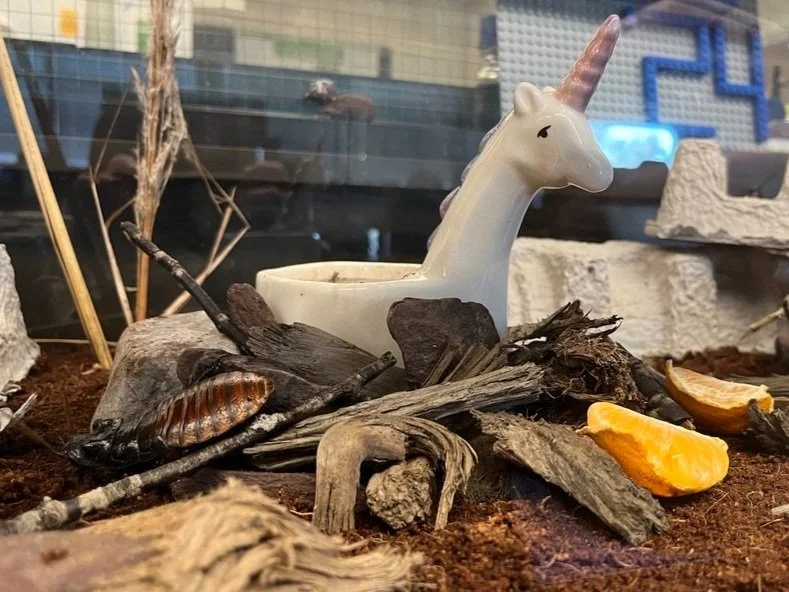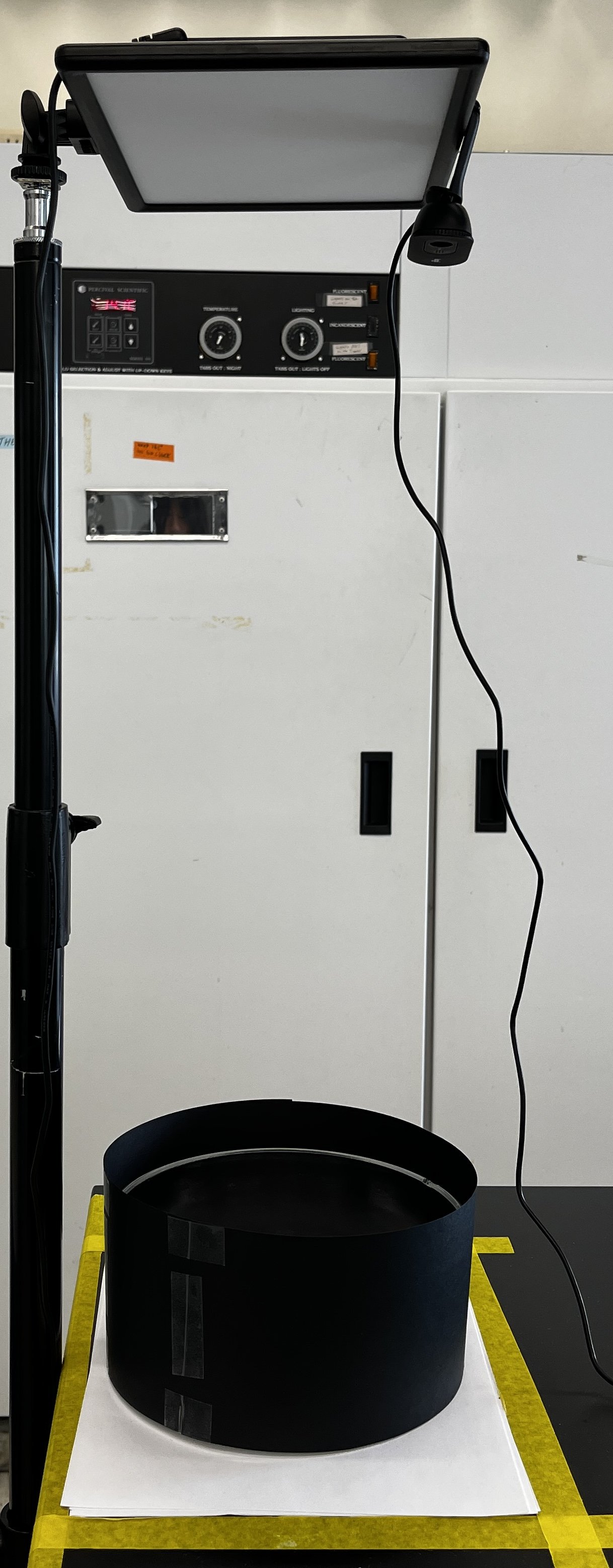social isolation on behavior and physiology of
madagascar hissing cockroaches
Abstract
The COVID-19 pandemic has exacerbated public health concerns worldwide, with social isolation linked to worsened mental, behavioral, and physiological health, disproportionately affecting marginalized groups. This study uses Gromphadorhina Portentosa (Madagascar Hissing Cockroach) as a model to examine the effects of social isolation on exploratory behavior (via AI video analysis) and glucose metabolism (via hemolymph glucose levels). A 2x2 randomized design with four treatment groups (socialized/isolated early and late instars) revealed that social isolation reduced exploratory behavior, with early instars affected more than late instars. It also increased glucose levels and caused weight loss in early instars but not late instars. These findings highlight the behavioral and biological impacts of social isolation.
This project was completed independently.
Behavioral Data
To capture the behavioral pattern of MHCs in the open maze, an AI-enabled video analytics technique was applied. Specifically, AnyMaze, a popular behavior-tracking software, was employed to serve this purpose. An aerial view of the open maze was captured via webcam, where the arena was scaled and split into three equal regions: B (Border), M (Middle), and C (Center). AnyMaze was utilized to identify and track the center of the roach and continuously take cumulative and regional measurements.
Biological data
All late and early instars underwent hemolymph extraction without fasting. Because cockroach hemolymph coagulates rapidly at any place of injury, an anticoagulant was necessary to collect hemolymph effectively. Collected hemolymph underwent phenol glucose quantification.
Results
This research used AI-powered video analytics to study the effects of social isolation on the behavior and physiology of Gromphadorhina portentosa (Madagascar hissing cockroaches), revealing that social isolation significantly impacts exploratory behavior as a stress indicator, with early instars being more affected than late instars. It also discovered stunted growth and elevated glucose levels in isolated early instars, highlighting a potential link between social isolation and increased childhood diabetes observed during the COVID-19 pandemic. By combining AI technology with behavioral studies, this work provides a foundation for understanding the biological consequences of social isolation, emphasizing its relevance to mental health and childhood development in the pandemic's aftermath.







